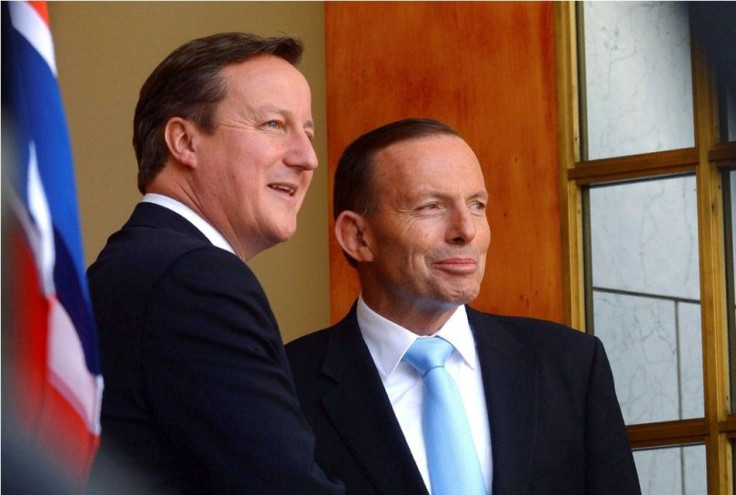Ex PM Tony Blair Flays Cameron’s Proposed EU Referendum: Warns of Economic Chaos And Loss of UK’s Global Image

Britain’s Labour party leader and former Prime Minister Tony Blair has flayed incumbent Prime Minister David Cameron’s election promise for holding a referendum to decide on Britain’s continuance in the European Union. Noting that Mr Cameron has already put “exit on the agenda”, Blair said such a move would endanger the U.K's position as a great global nation.
Responding to Blair’s criticism, Mr Cameron shot back that his predecessor was “ignoring the will of the people.” Mr Cameron had pledged a renegotiated deal for the U.K. in Europe and a referendum in 2017 to decide on the country's membership in the bloc. In the May 7 elections, the U.K's membership in the EU has turned into a serious issue with Labour and a few other parties opposing it. The biggest votary of the EU referendum is Eurosceptic UKIP led by Nigel Farage, which has put unbridled migration from EU states to the U.K, as a central problem in the country and wants an end to it, by breaking away from the bloc.
Campaigning for Labour candidates in his old Sedgefield constituency, Blair praised current Labour leader Ed Miliband and offered his "100 percent" support for his poll promises. Blair was elected to Parliament as a Labour leader in 1997, 2001 and 2005, and stood down as prime minister in 2007.
Huge Distraction
Blair said a referendum would be a "huge distraction" and the prospect of its possible exit would leave a pall of unpredictability hanging over the British economy. He said the “oddest thing of about this referendum is that the PM doesn't really believe we should leave Europe; not even the Europe as it is today.”
Blair said, as an issue it is touching the country's future and is too important "to be traded like this." He reiterated quitting the EU would leave Britain diminished in the world and take the country out of the leadership game globally. The former PM said it was foolish to believe that a referendum would settle the issue once and for all. Already the Labour party has made its opposition to a referendum a key plank of its appeal to the business community, which sees referendum as a problem that may add to the uncertainty.
Blair Not Credible
The Conservatives hit back and said Blair has "no credibility" over the EU issue, and said he "gave away" part of the U.K's rebate on contributions to the EU, when he was the Prime Minister. Mr Cameron also explained his party’s position with more clarity and said it wanted the U.K. to remain within a "reformed" EU, with powers "coming back to Britain.” He said Tony Blair and Ed Miliband do not think "we should trust the people and I completely disagree. I think the British people deserve a say about Europe. You can't stay in an organisation unless it has the full-hearted consent of the people and that is why it is right to have a referendum.”
UKIP, while welcoming Blair's intervention said there is is no surprise to see "Blair pat Ed Miliband for signing up to the corporatist EU agenda," according to its leader Nigel Farage. Lib Dem leader Nick Clegg, an opponent of referendum in 2017, said he agreed with Blair that a future Conservative government should be beholden to Eurosceptics in all parties.
Business Backs Blair
Meanwhile, Guardian reports that business groups have thrown their weight behind Tony Blair’s warning about the ill effects of a referendum on the U.K.’s economy. Business for New Europe said quitting the EU could force many companies, which are already using Britain as a European base, to quit the U.K. The group warned that businesses will hold back investments in Britain because of the uncertainty that is emanating from a possible referendum.
The BNE’s advisory council includes Sir Michael Rake, chairman of BT, Chris Gibson-Smith, chairman of the London Stock Exchange, and Sir Philip Hampton, chairman of Royal Bank of Scotland.
(For feedback/comments, contact the writer at kalyanaussie@gmail.com)





















